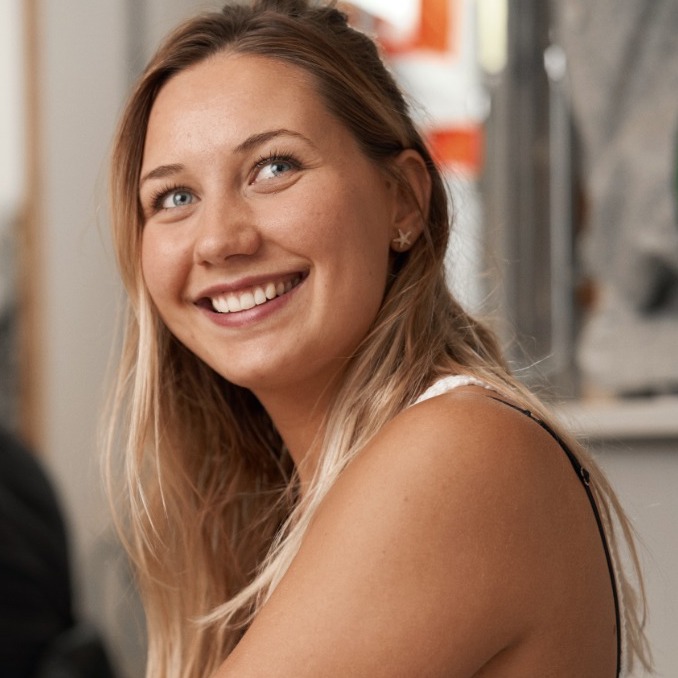We joined a night shift at Samusocial de Paris. Their mobile assistance teams – made up of a social worker, a nurse, and a driver – go out day and night to meet homeless people on the streets throughout Paris.
On a cold night at the end of February, we joined a night shift at Samusocial de Paris. Their mobile assistance teams – made up of a social worker, a nurse, and a driver – go out day and night to meet homeless people on the streets throughout Paris. Loaded with 3 sheltersuits, we experienced a typical night on call with a group of young and passionate people helping people.
Le Samusocial de Paris, a humanitarian emergency service created in 1993, has developed a specific way to fight exclusion. The goal is to provide unconditional assistance and medical care to the homeless and everyone in deep social distress, without discrimination. They aim to reinstall the desire to get off the streets and offer the necessary means to do so. Thanks to our collaboration with fashion house Chloé, we were able to donate 90 Sheltersuits to support the work of the outreach teams.
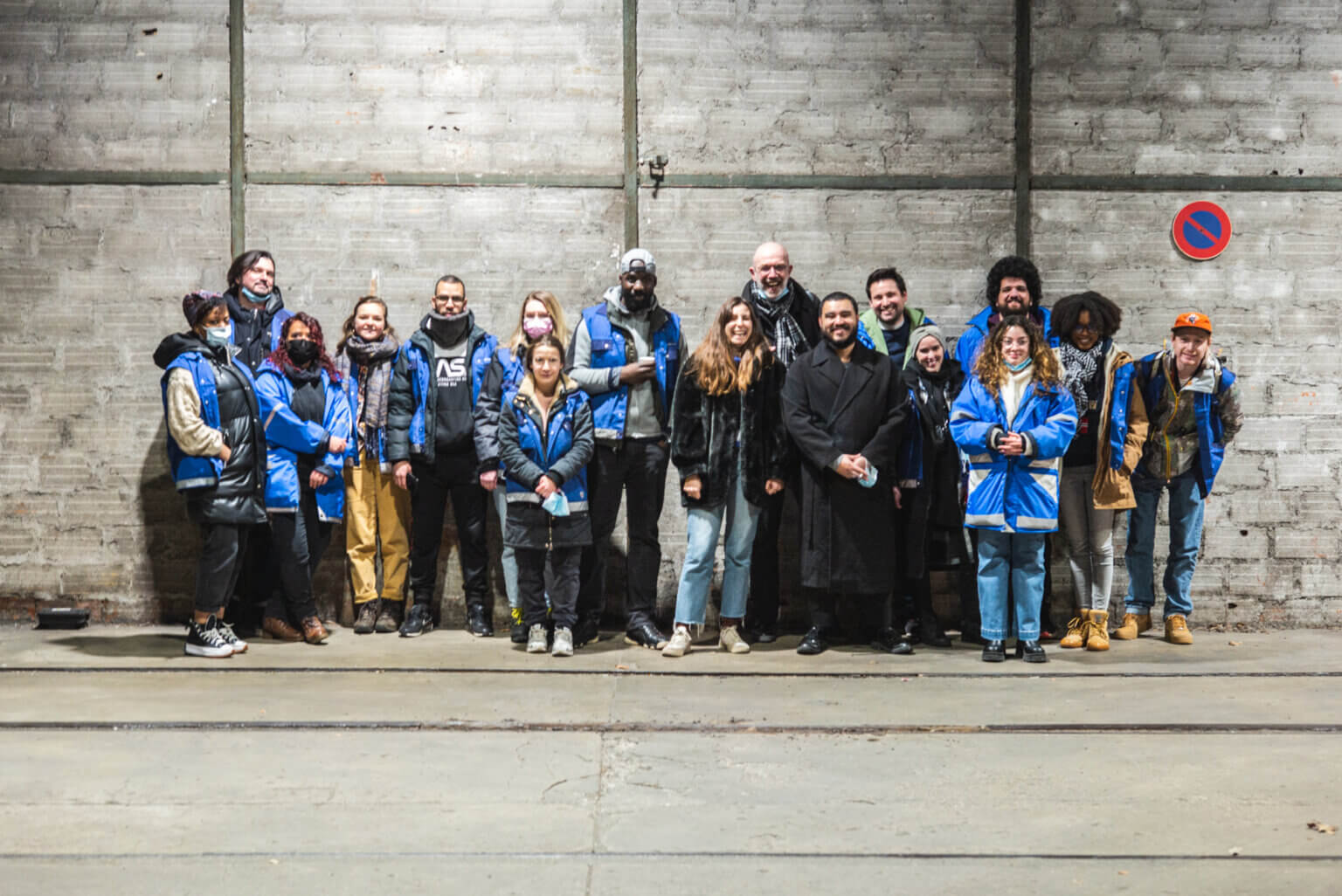
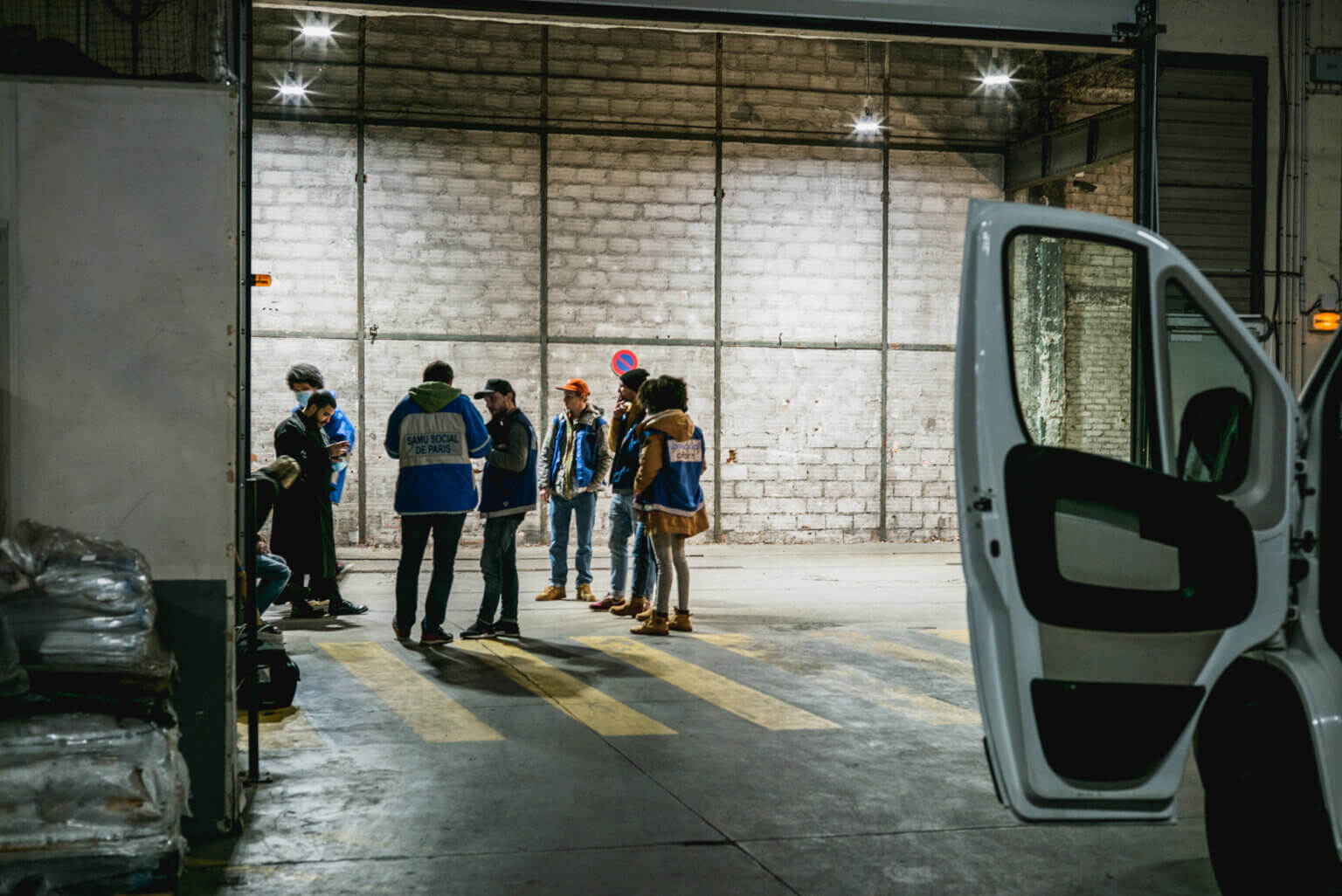
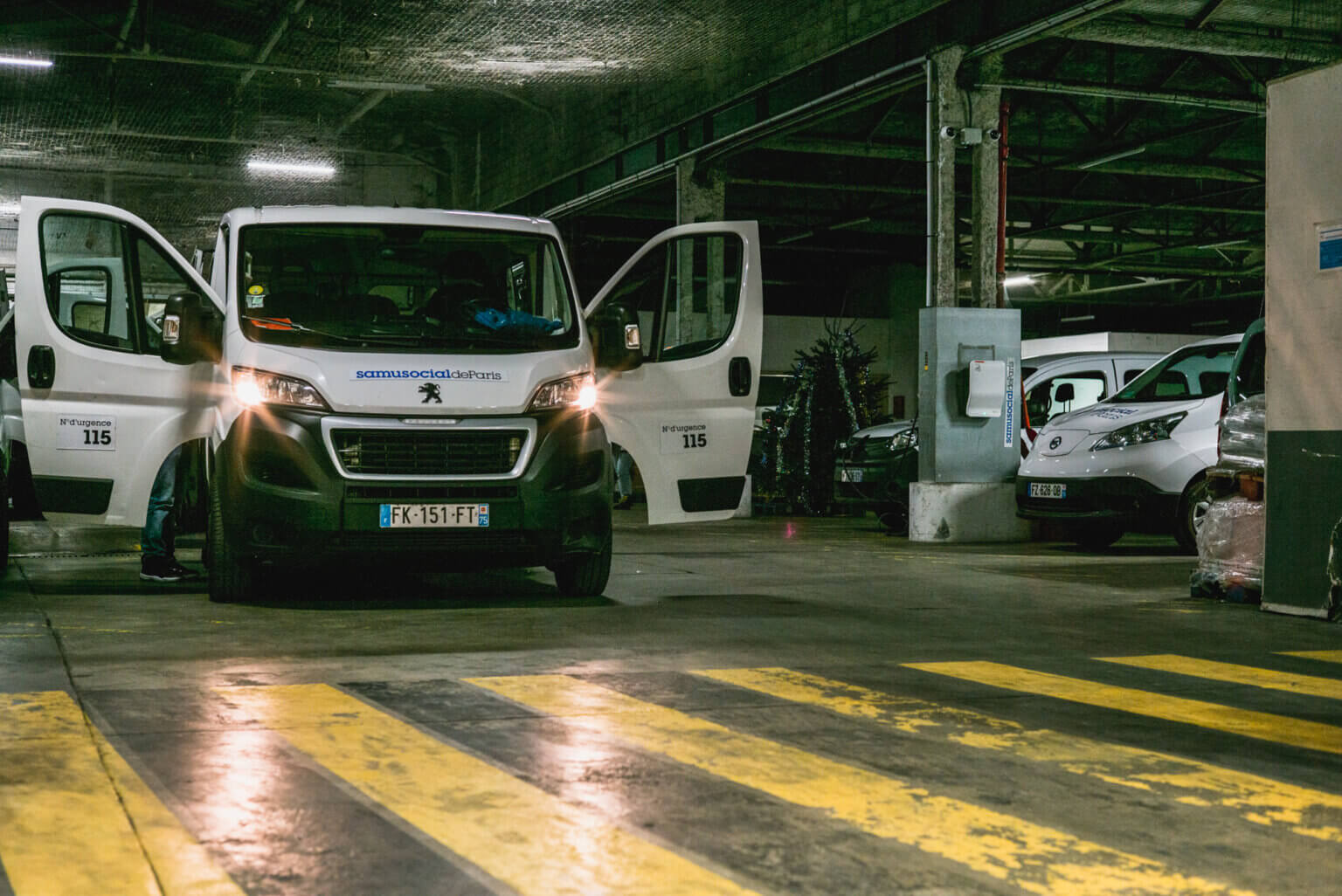
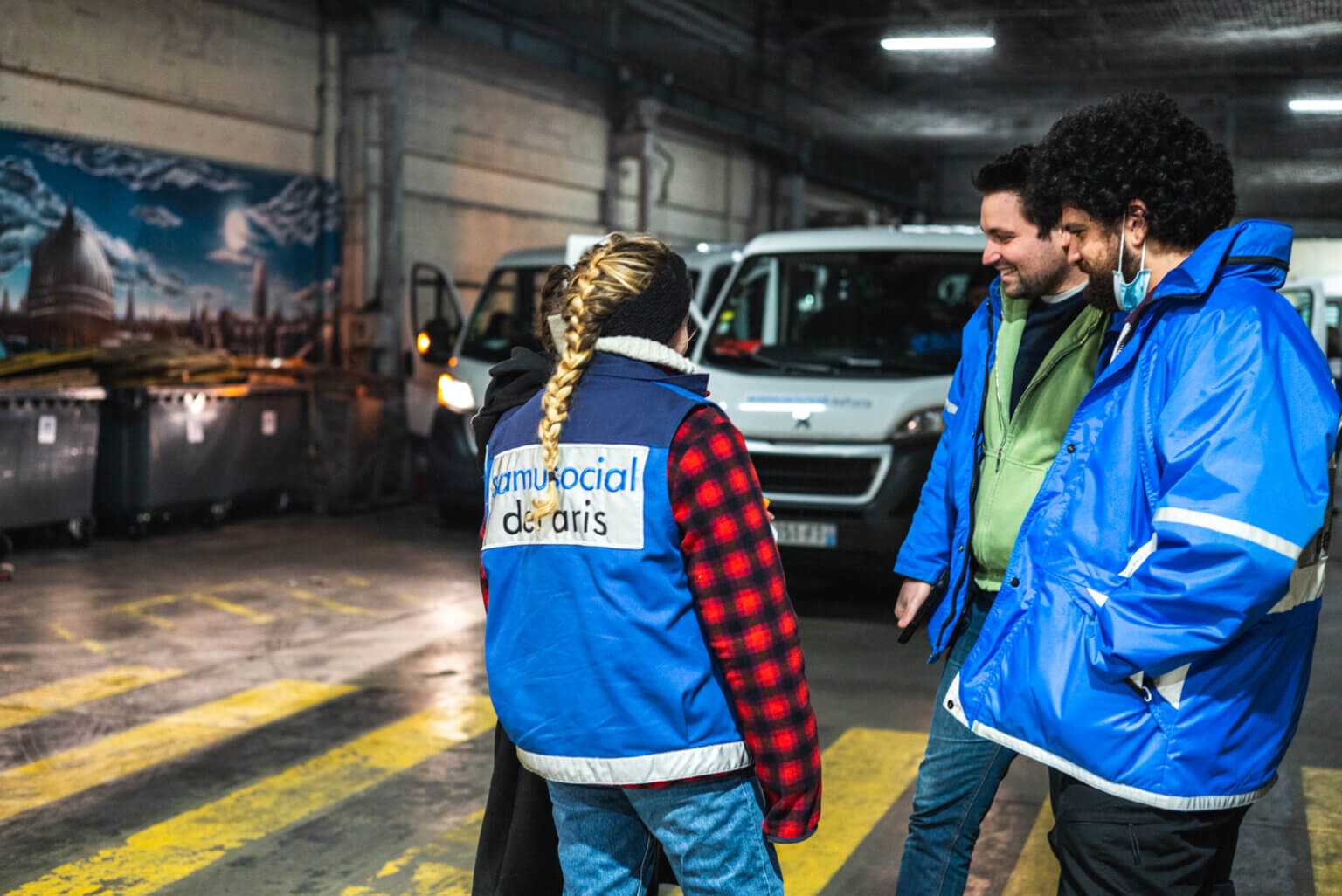
We were welcomed by Luc Bisset, the director of the night teams, and convened at 8 PM for the briefing at the headquarters. Following the evaluation, everyone set out to load their van. Our team included nurse Arthur, social worker Thibaut, and driver Rustam.
All teams are assigned to different areas of Paris, and each van departs in response to reports received through the 115 emergency phone number. The teams also crisscross the city, stopping when they observe a person in a situation of social distress. The mobile teams assess the assistance required by the individual and, with their consent, may accompany them to an emergency accommodation center (subject to availability) or a hospital. Additionally, they provide everyone with hot drinks, blankets, and clothes.
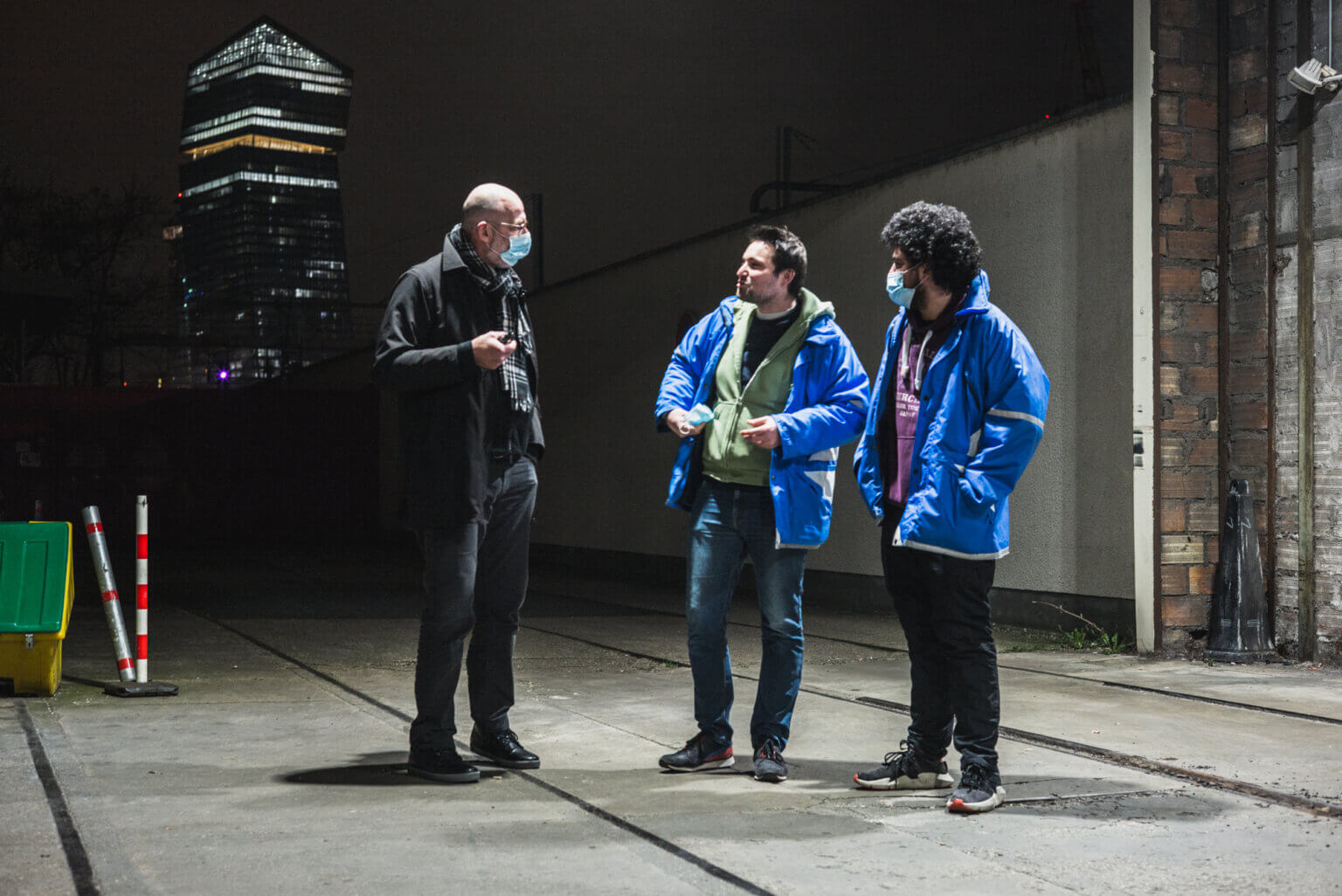
Exclusion is a social death sentence.
The recent yearly count, done on the night of January 20th, counted 2600 people sleeping outside in Paris. But people sleeping in the metro, parks, or shelters, are not included, causing a distorted picture of reality. Last year, over 100 people died on the streets of Paris alone, with victims ranging from 80 years old to infants as young as four.* The collective Les Morts de la Rue (The Dead of the Street) is a charity keeping a count of the number of homeless people passing away on the streets of France. Since 2014, it has averaged more than 500 every year. In recent years, the number of homeless people in France has risen to more than 200.000, which represents an increase of over 50 percent in the last 15 years. More than 30.000 of those are minors.**
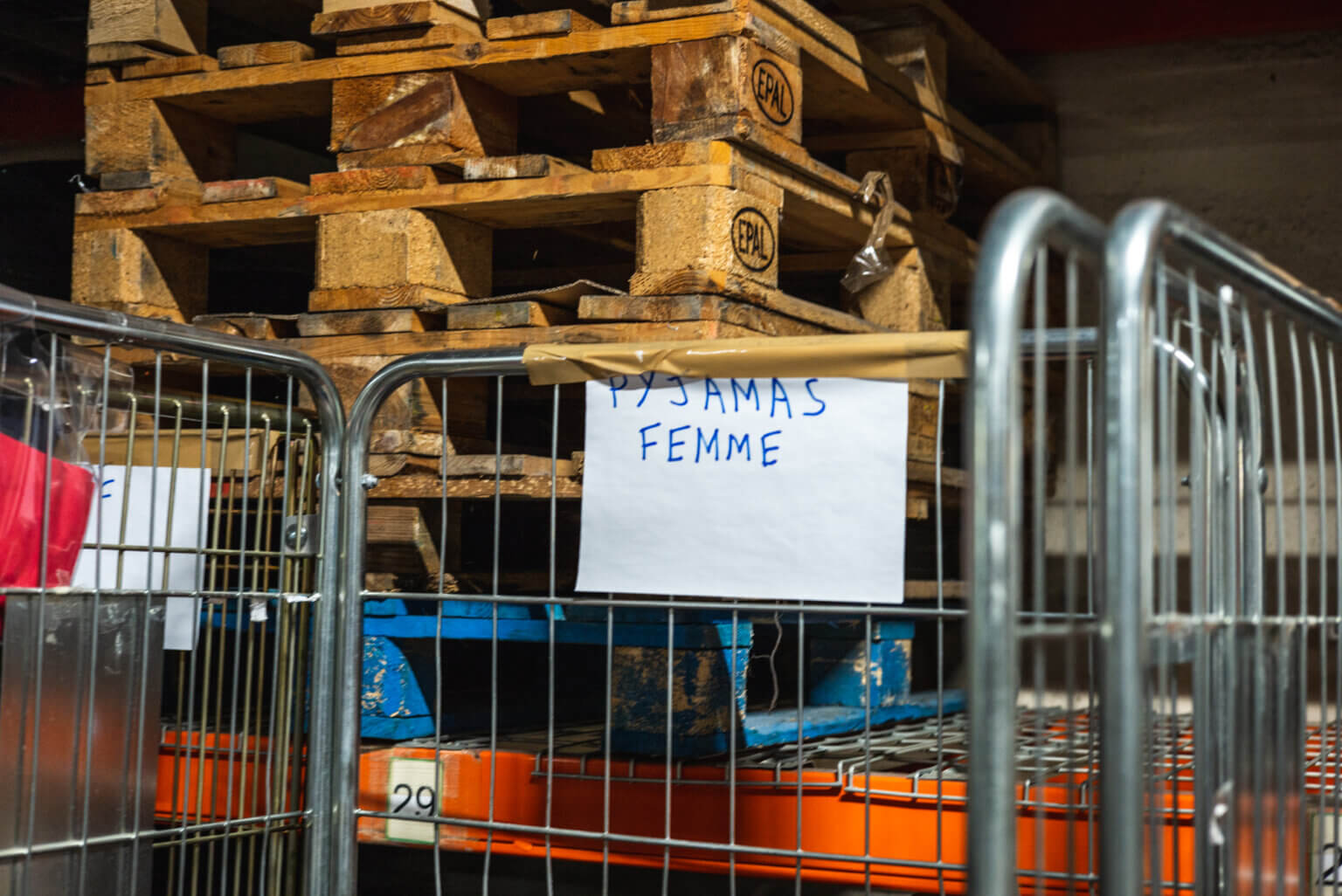
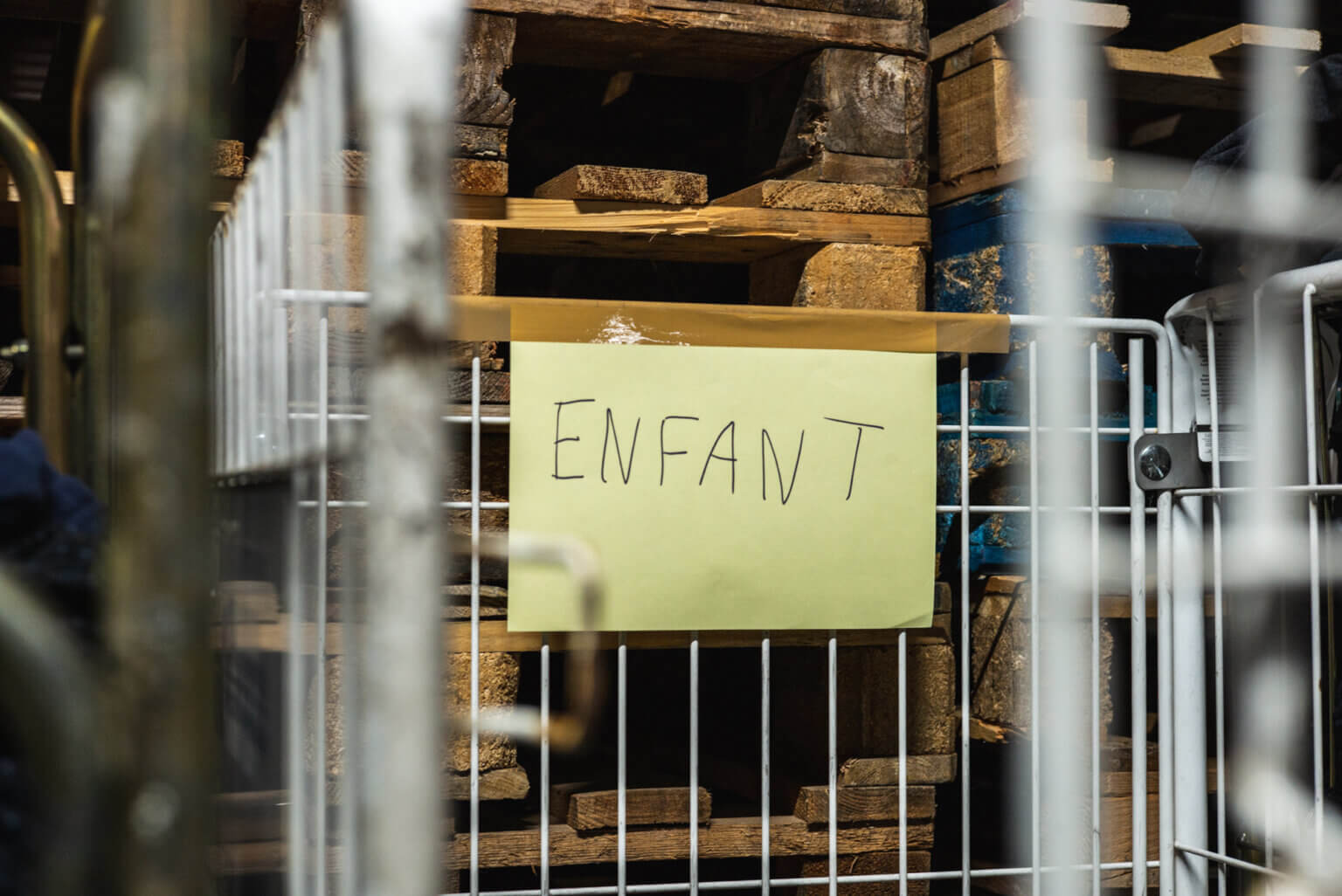
Rustam, our driver, has been in Paris for 15 years and speaks Russian, serving as a translator for the first group of people we go to see. Three men are lying at what seems like a random spot in the middle of a sidewalk. Rustam parks the van, and we are asked to wait for a minute so they can introduce themselves and assess the situation. Afterward, they gesture for us to come over. The spot turns out not to be random at all, Rustam translates; they are lying on top of a grid, blowing hot air from the metro—a trick used by many to keep warm on the streets.
Sokolov, from Russia, sleeps on this heater every night. We came to pick up his friend, who because of a medical condition could claim a bed in a shelter. But after some debate, he refused and chose to stay outside. It happens, Arthur tells us. The emergency shelter is available for everyone with a medical condition or in need of direct help, but it’s usually just for one night. In the morning they have to check out again. A process with hefty paperwork and sometimes people prefer not to bother. We were glad we could at least offer them a Sheltersuit.
Next, we looked for a woman dressed in beige with a black backpack. Someone had signaled her in the area and called 155; the emergency contact line of SamuSocial. Rustam circled around the area a few times but she had disappeared.
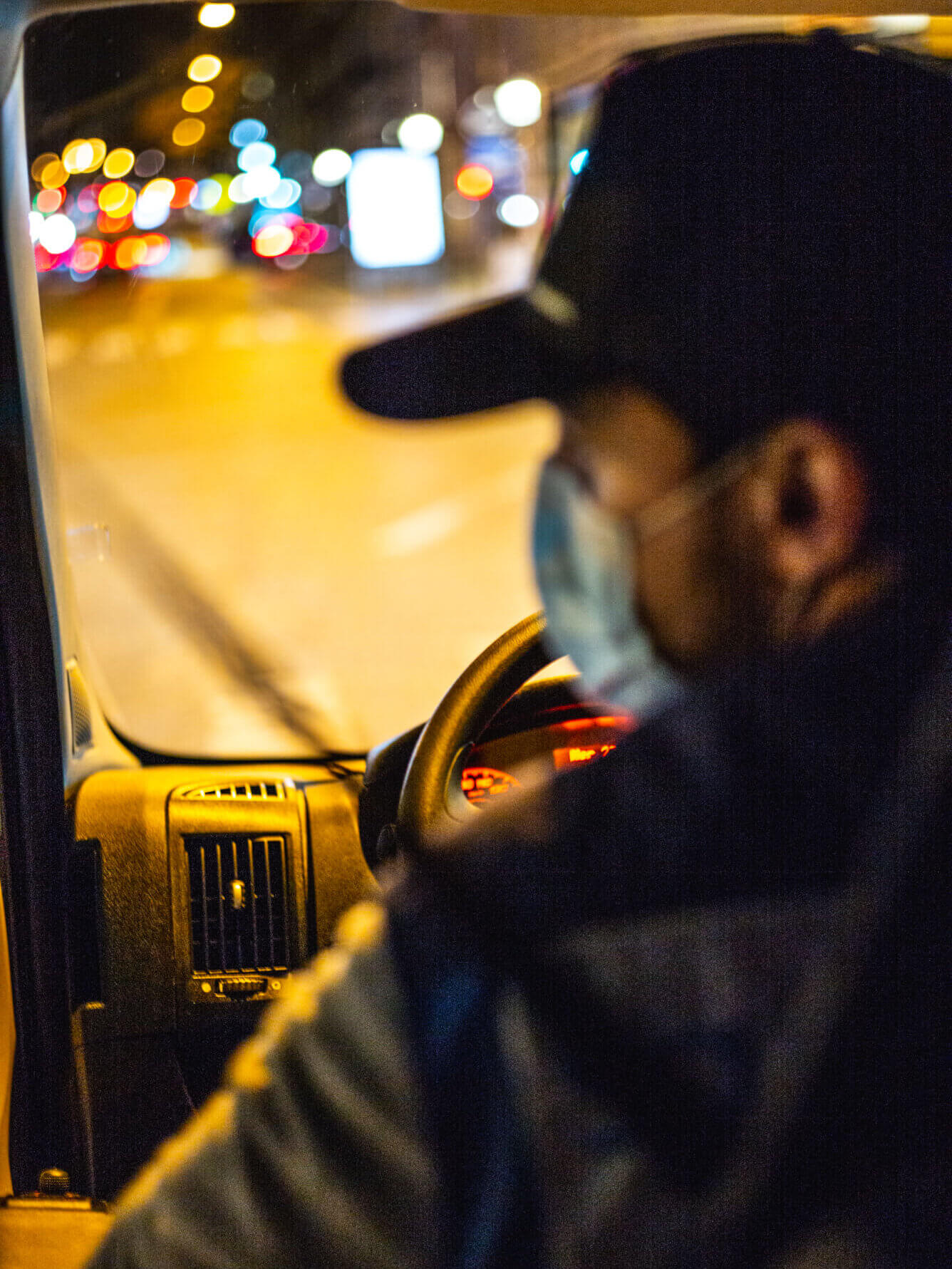
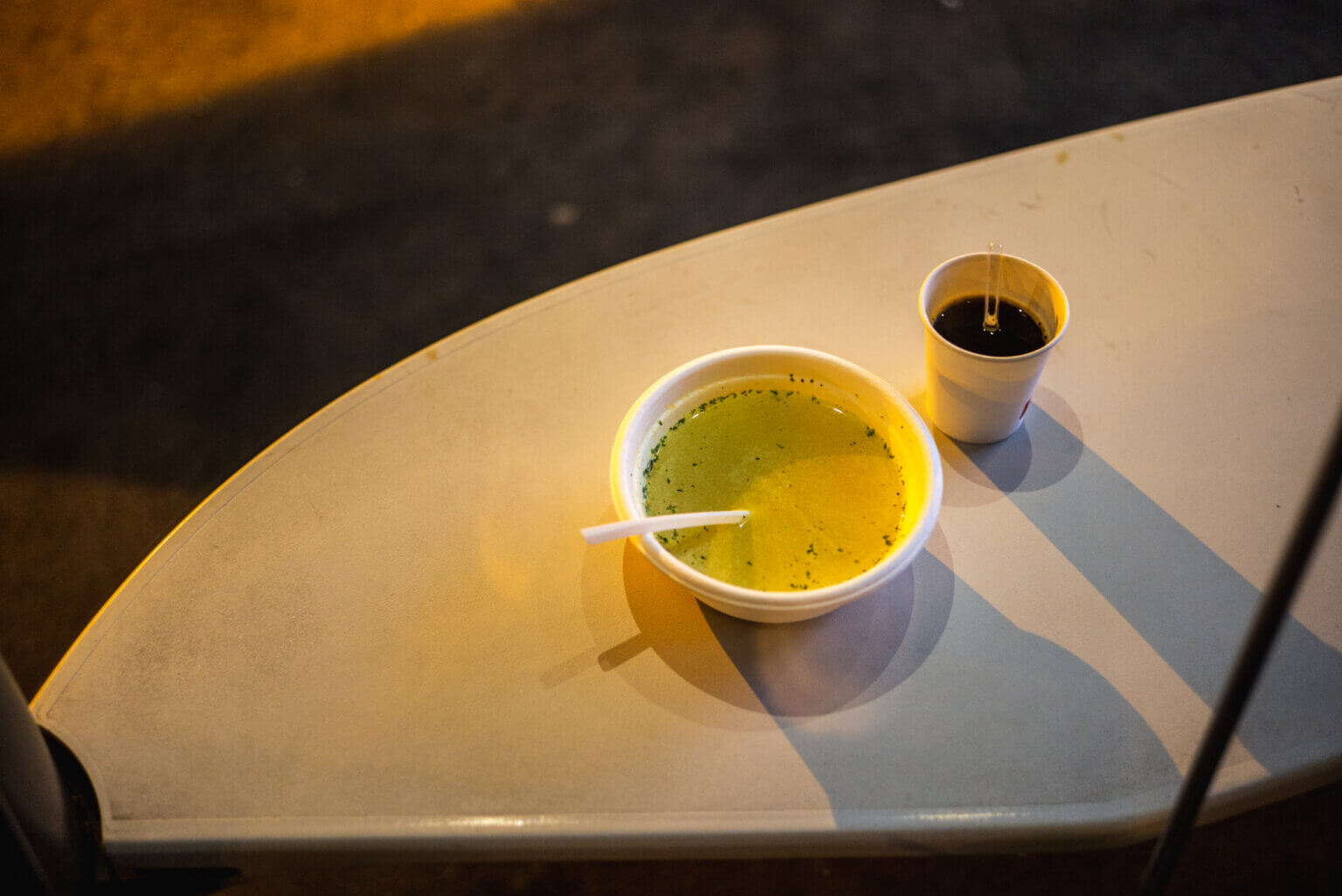
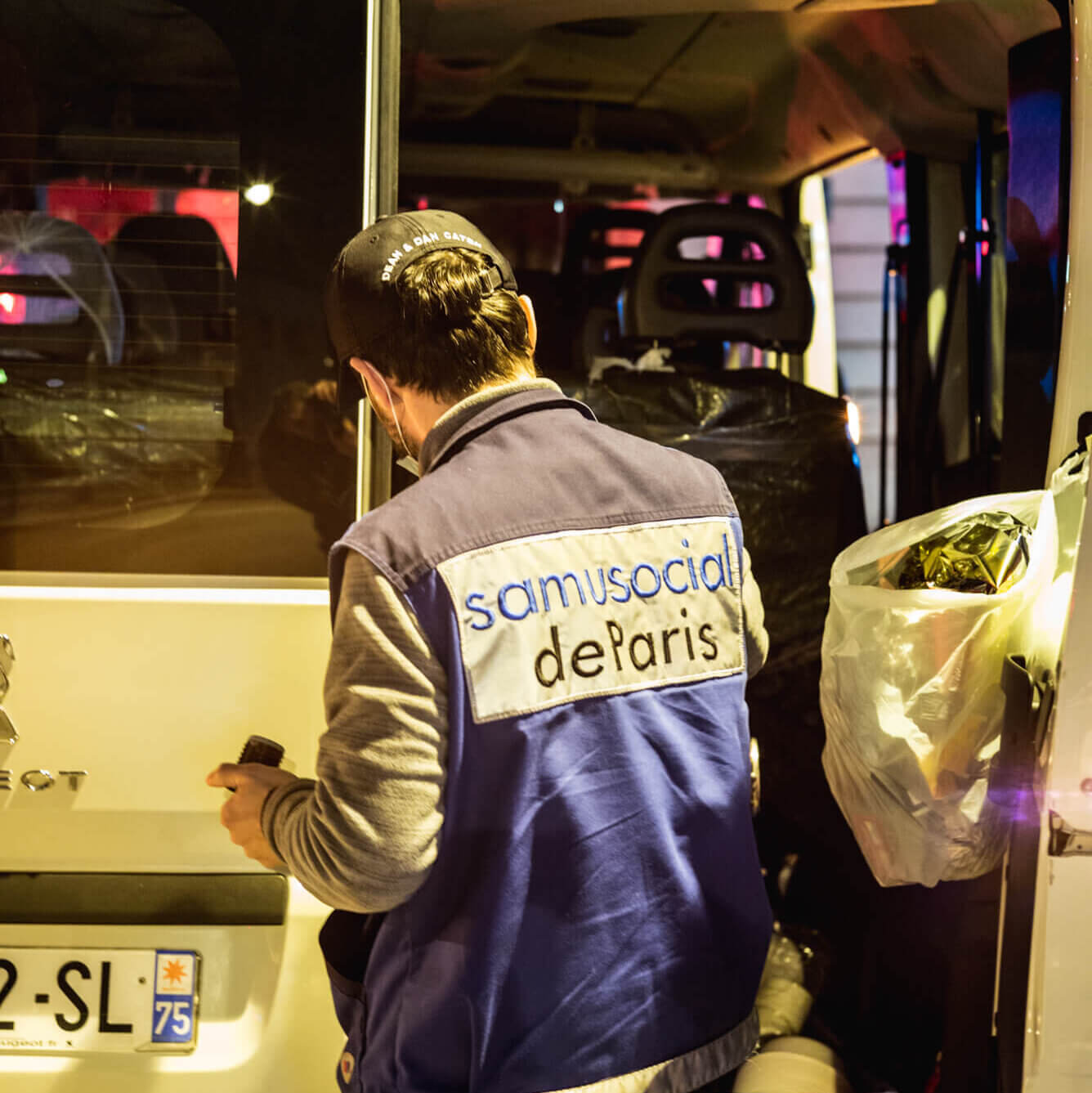
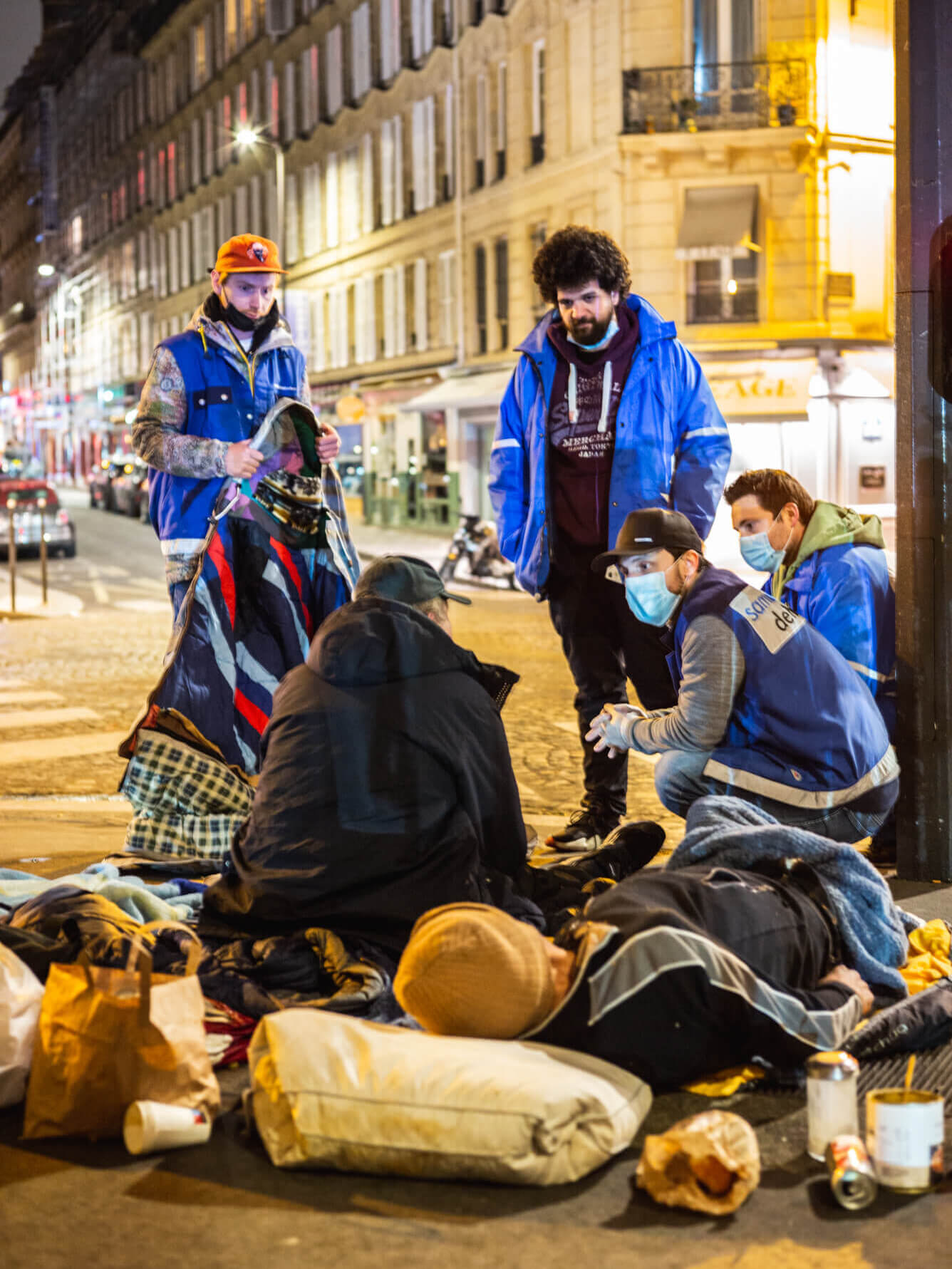
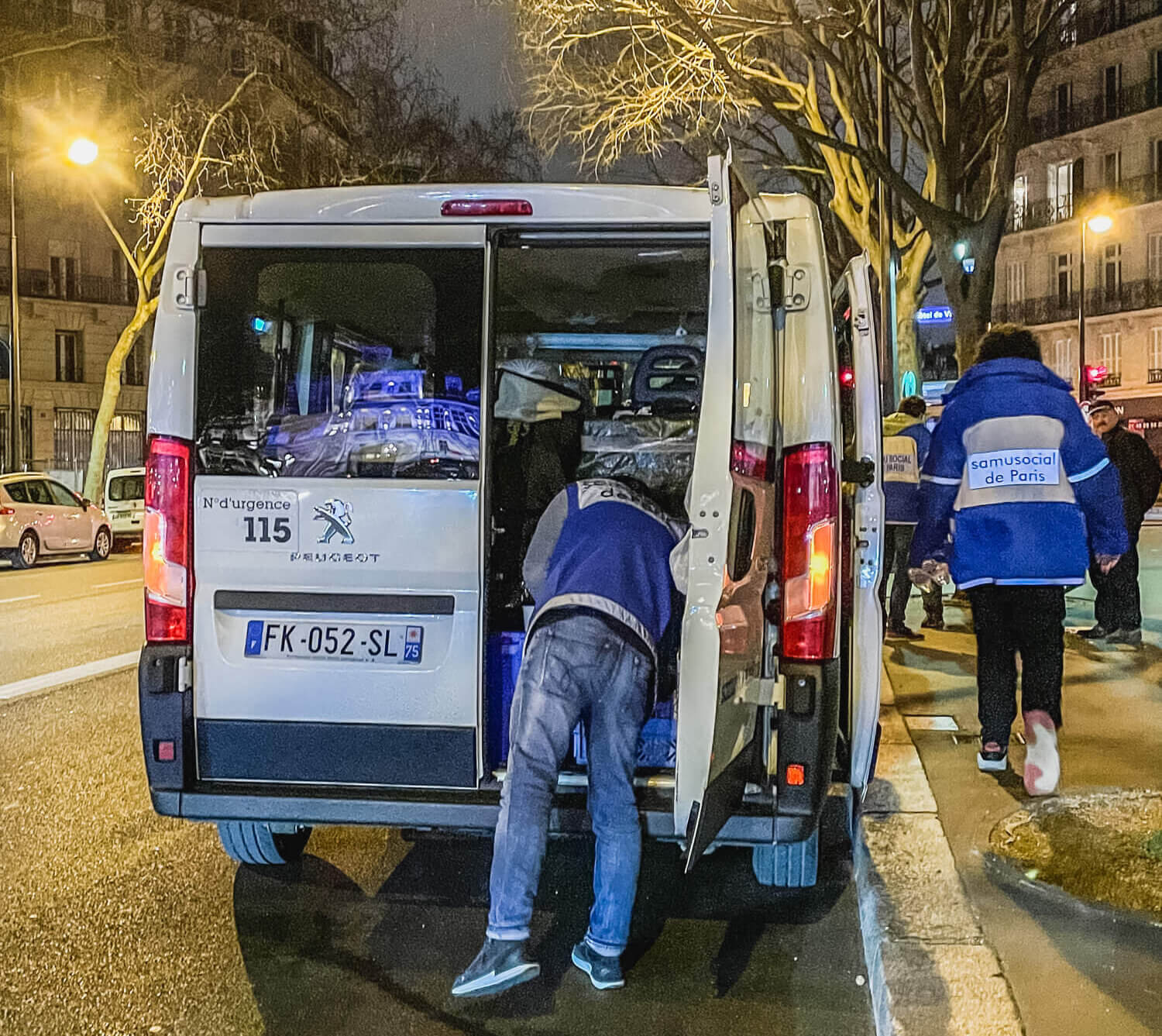
Arthur, who is a nurse, used to work in the hospital in the ICU when Covid hit. After 6 months of working weeks of 70+ hours, he couldn’t handle it anymore. Not even physically, but mentally the work took its toll. “Choosing between who lives and who dies on a daily basis, for 6 months straight, it just was too much.” He started working for SamuSocial in September 2020 and enjoys the hands-on approach of the work.
One of the main principles of Samusocial is that when someone doesn’t want help, we respect that too.
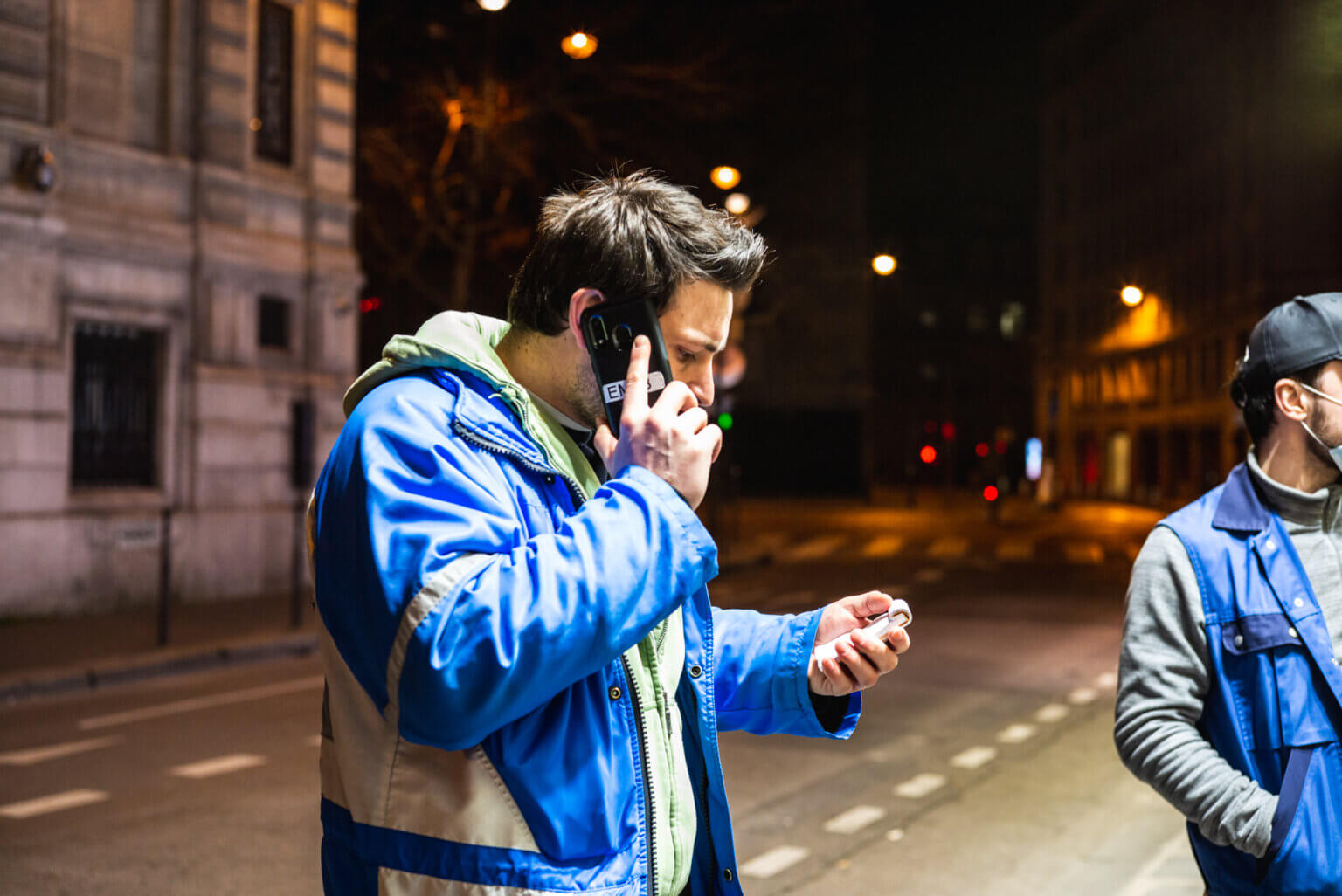
Then we meet Bashar, a 19-year-old who called us himself. With his baseball cap and earphones, he doesn’t make the impression of someone sleeping outside. But those things are all he has. It’s his third night outside after his wife kicked him out. He is from Algeria and is illegal in France. Paperwork makes it very hard for him to find housing, which is not easy in Paris anyway. Thibaud, the social worker of our team, talks to Bashar about his options and took his contacts to meet with him the next day. Bashar joined us in the van, and we brought him to a shelter.
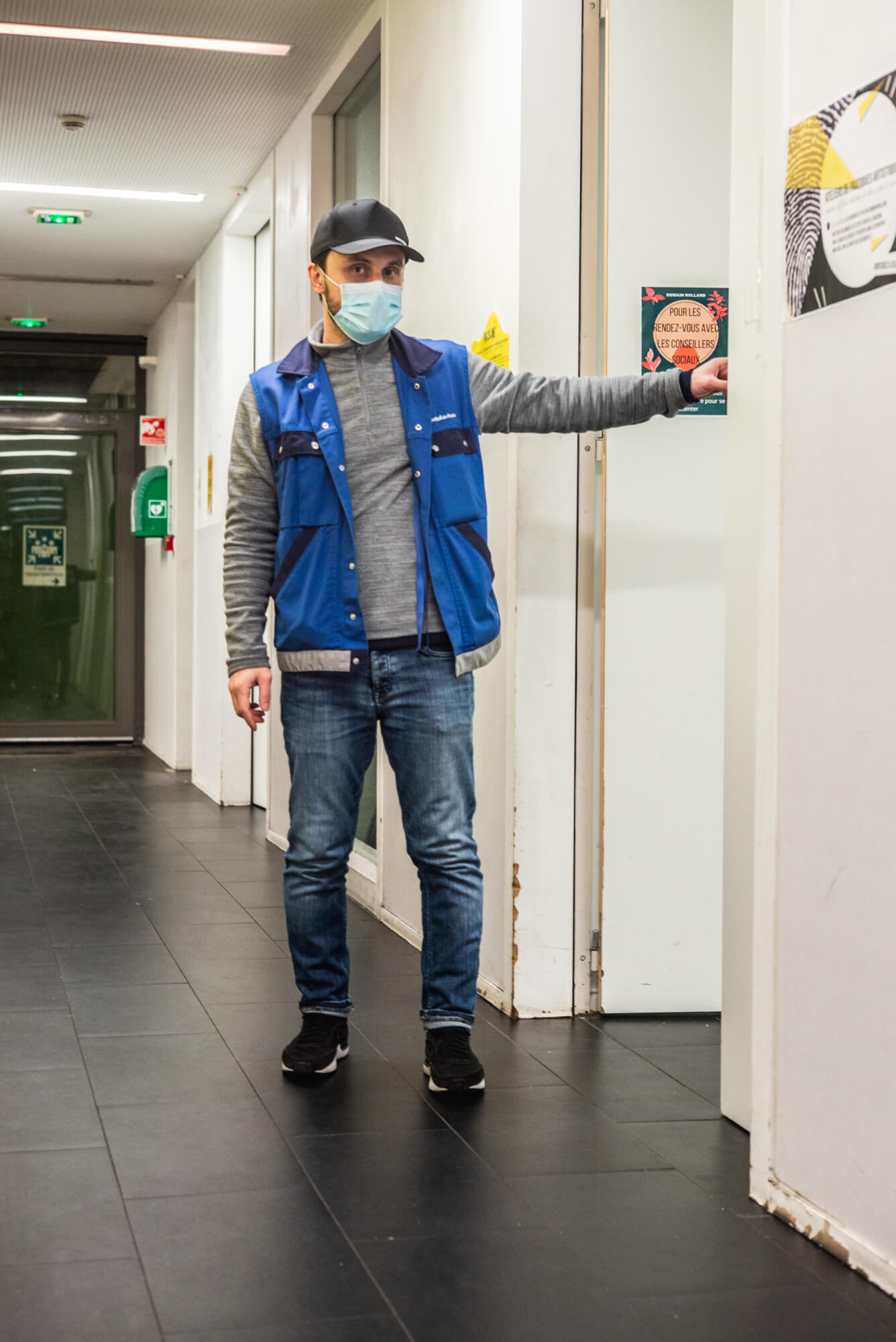
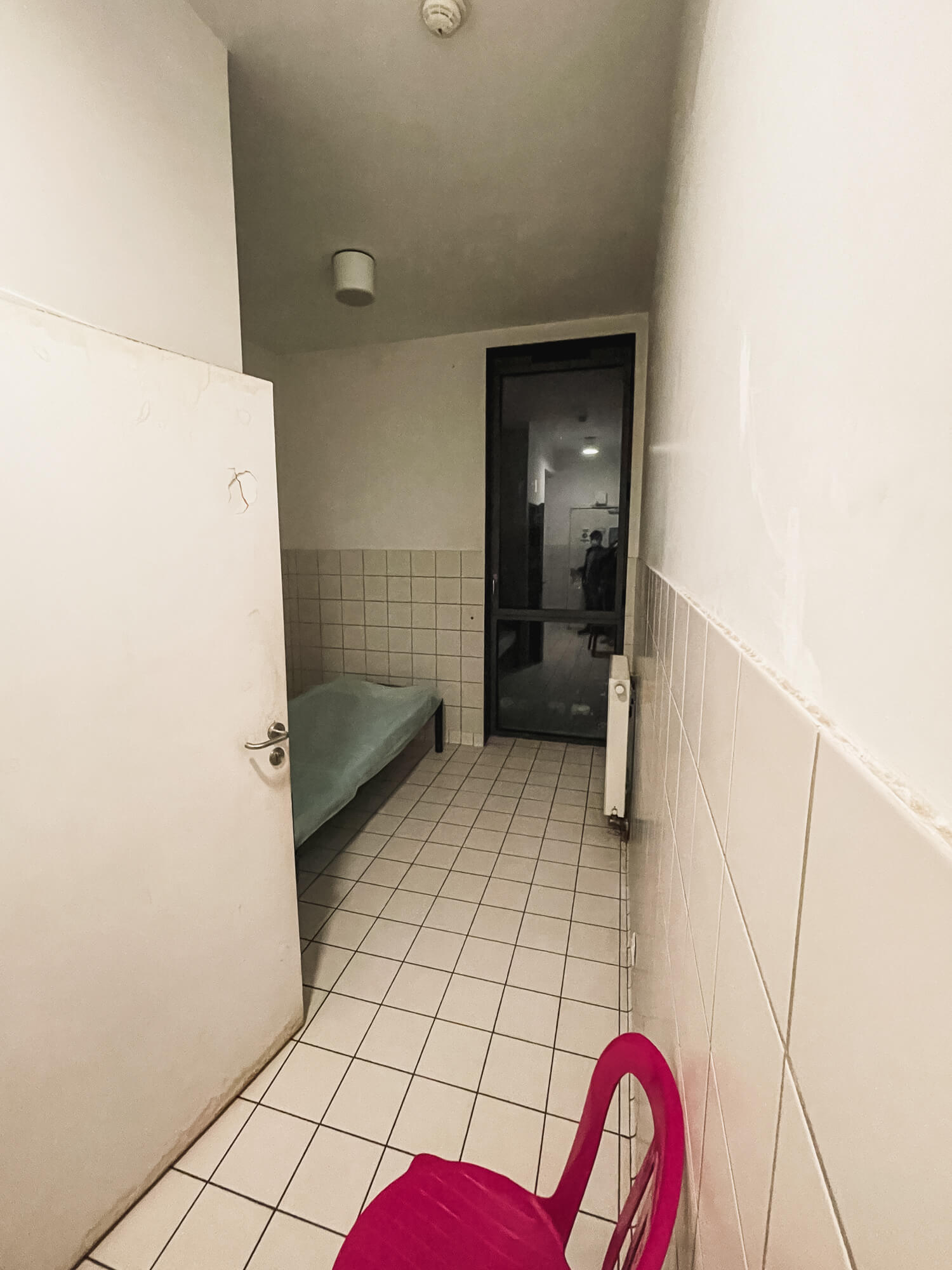
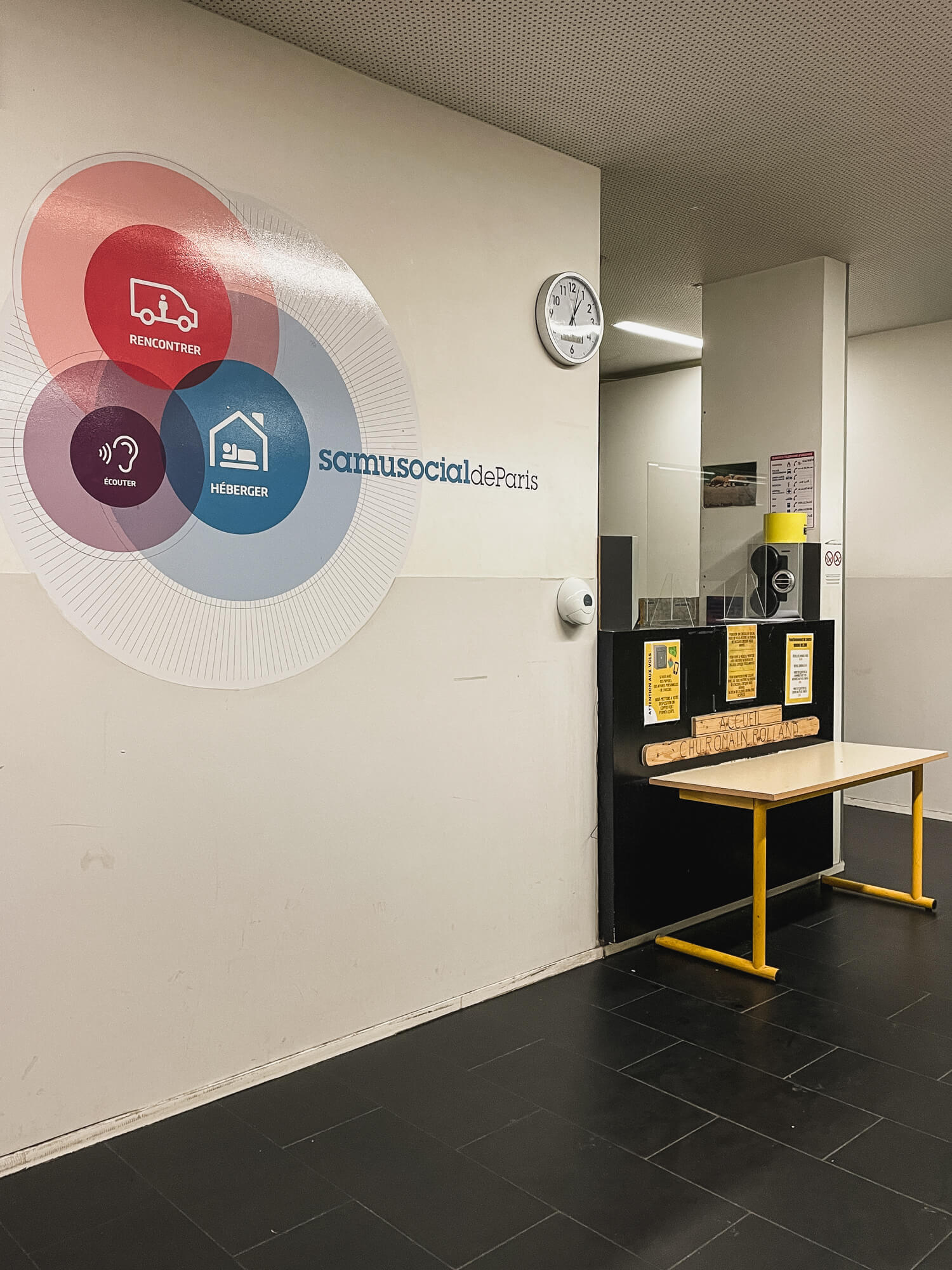
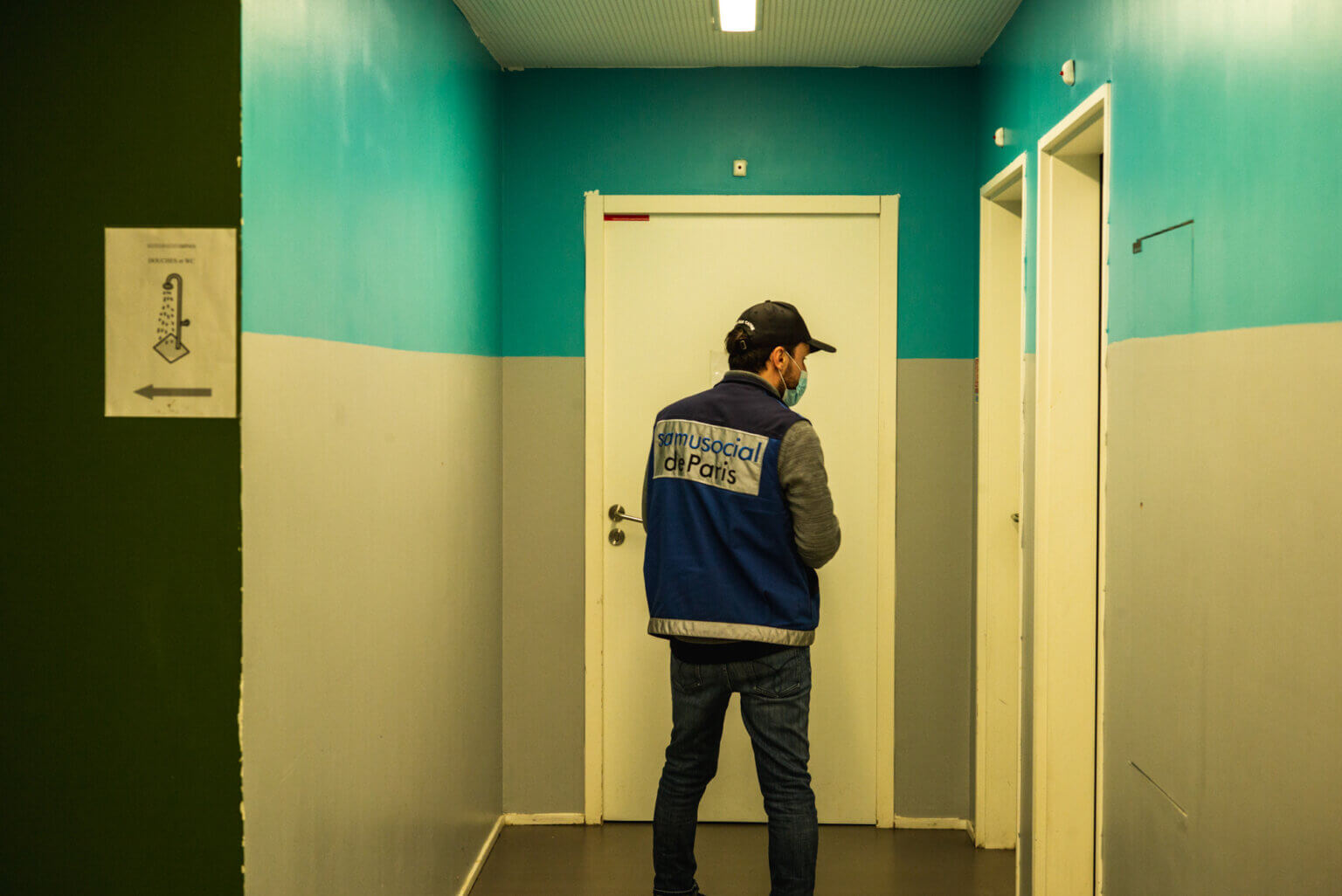
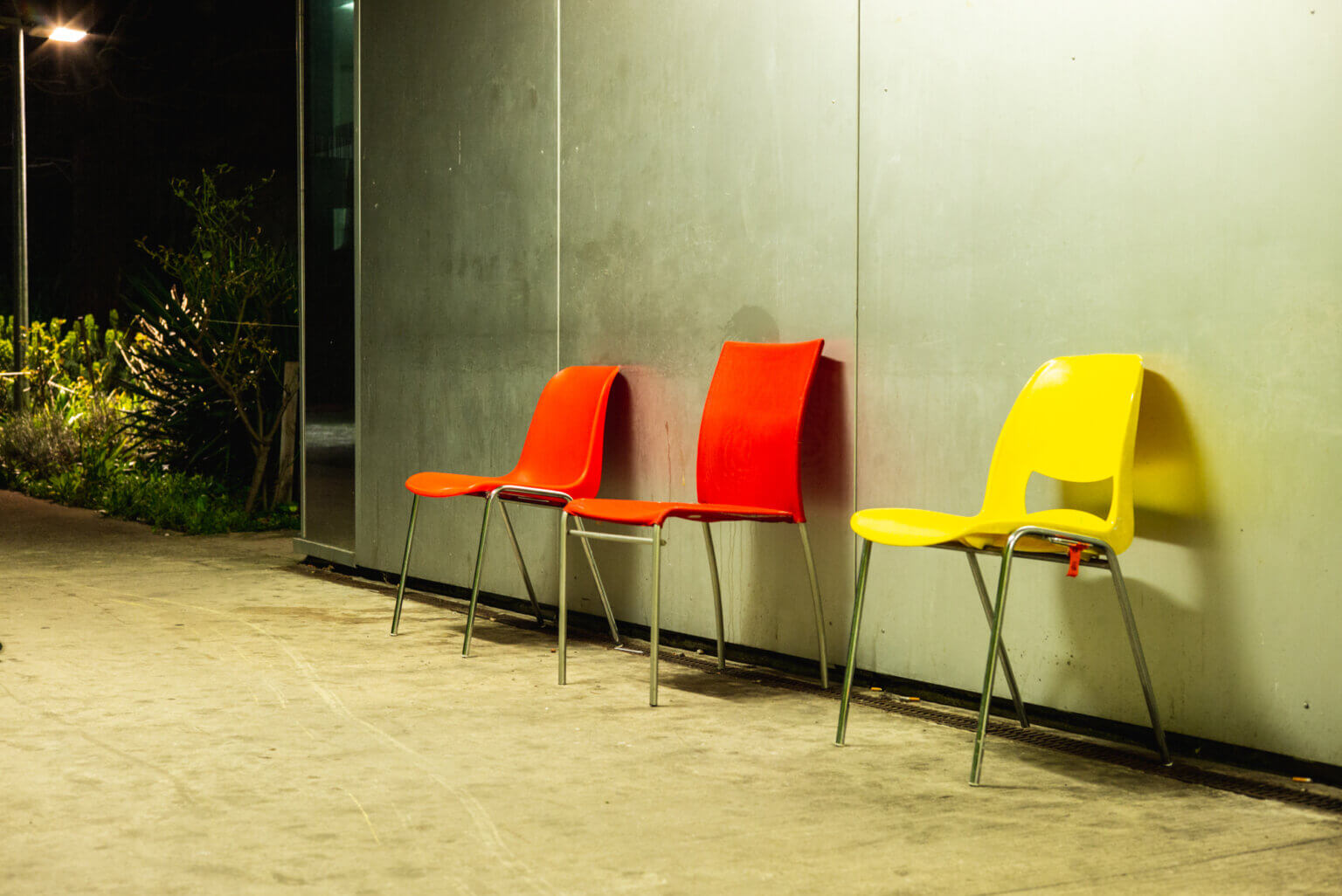
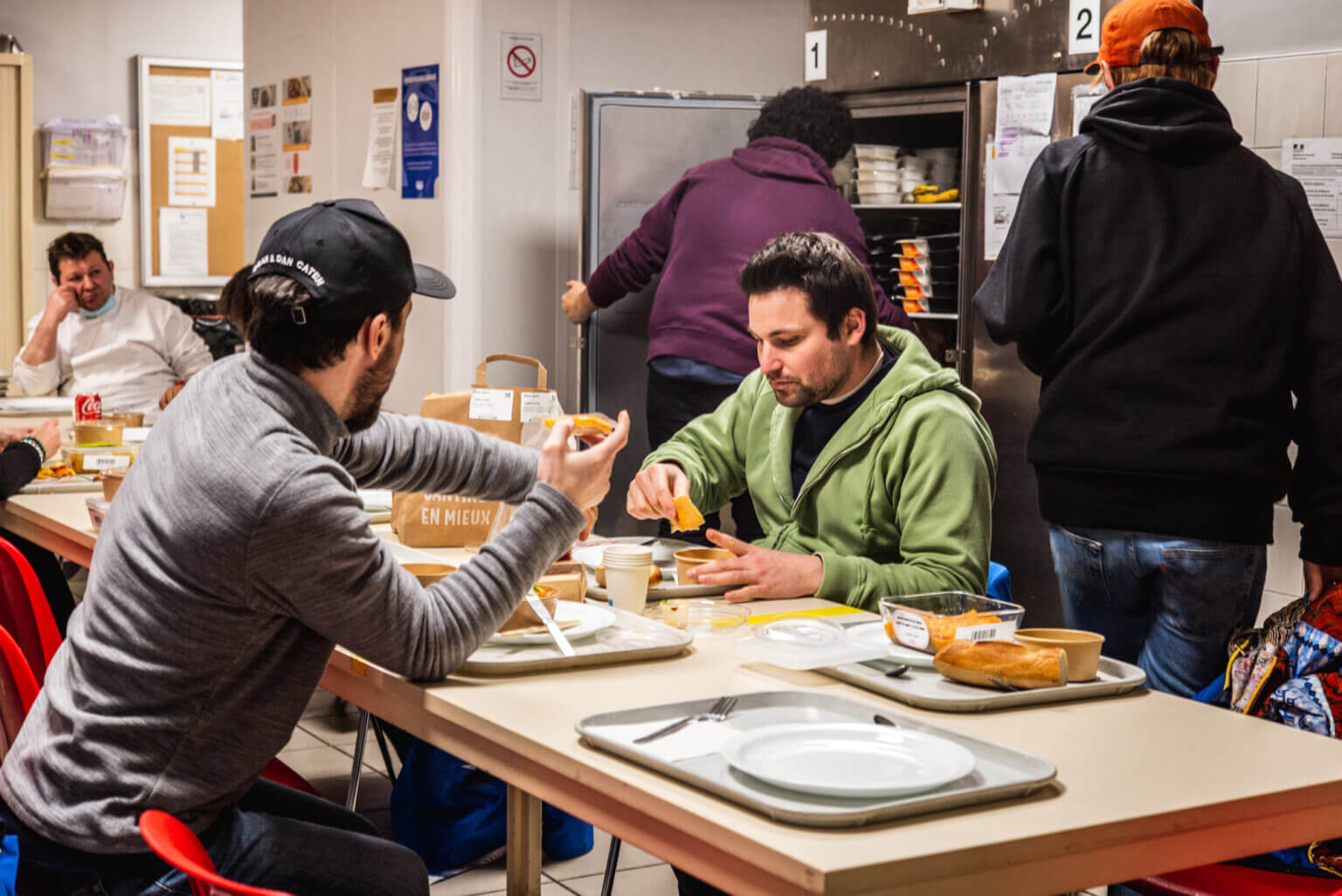
Rustam shows me around the emergency shelter and explains it is for one night only. Organized on the principle of immediate, unconditional, and anonymous reception, the Espaces Solidarité Insertion (ESI) offers help and support to adults in great difficulty. People who come in get a small private room, access to showers, and most importantly, social help. Tomorrow a mountain of paperwork awaits and his future is unclear, but at least Bashar will sleep in a bed tonight and will get some needed help tomorrow.
The guys head back to headquarters, and after lunch set out again for the second part of the night of helping people. Thank you, Arthur, Thibaud, and Rustam for your hospitality and commitment to helping those less fortunate.









